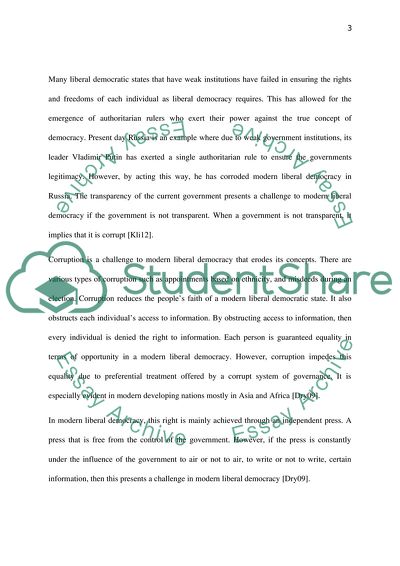Cite this document
(Internal and External Challenges Affecting Modern Democracy Coursework Example | Topics and Well Written Essays - 1750 words, n.d.)
Internal and External Challenges Affecting Modern Democracy Coursework Example | Topics and Well Written Essays - 1750 words. https://studentshare.org/politics/1836979-to-what-extent-have-internal-and-external-challenges-fundamentally-changed-the-nature-of-the-modern-liberal-democratic-state
Internal and External Challenges Affecting Modern Democracy Coursework Example | Topics and Well Written Essays - 1750 words. https://studentshare.org/politics/1836979-to-what-extent-have-internal-and-external-challenges-fundamentally-changed-the-nature-of-the-modern-liberal-democratic-state
(Internal and External Challenges Affecting Modern Democracy Coursework Example | Topics and Well Written Essays - 1750 Words)
Internal and External Challenges Affecting Modern Democracy Coursework Example | Topics and Well Written Essays - 1750 Words. https://studentshare.org/politics/1836979-to-what-extent-have-internal-and-external-challenges-fundamentally-changed-the-nature-of-the-modern-liberal-democratic-state.
Internal and External Challenges Affecting Modern Democracy Coursework Example | Topics and Well Written Essays - 1750 Words. https://studentshare.org/politics/1836979-to-what-extent-have-internal-and-external-challenges-fundamentally-changed-the-nature-of-the-modern-liberal-democratic-state.
“Internal and External Challenges Affecting Modern Democracy Coursework Example | Topics and Well Written Essays - 1750 Words”. https://studentshare.org/politics/1836979-to-what-extent-have-internal-and-external-challenges-fundamentally-changed-the-nature-of-the-modern-liberal-democratic-state.


